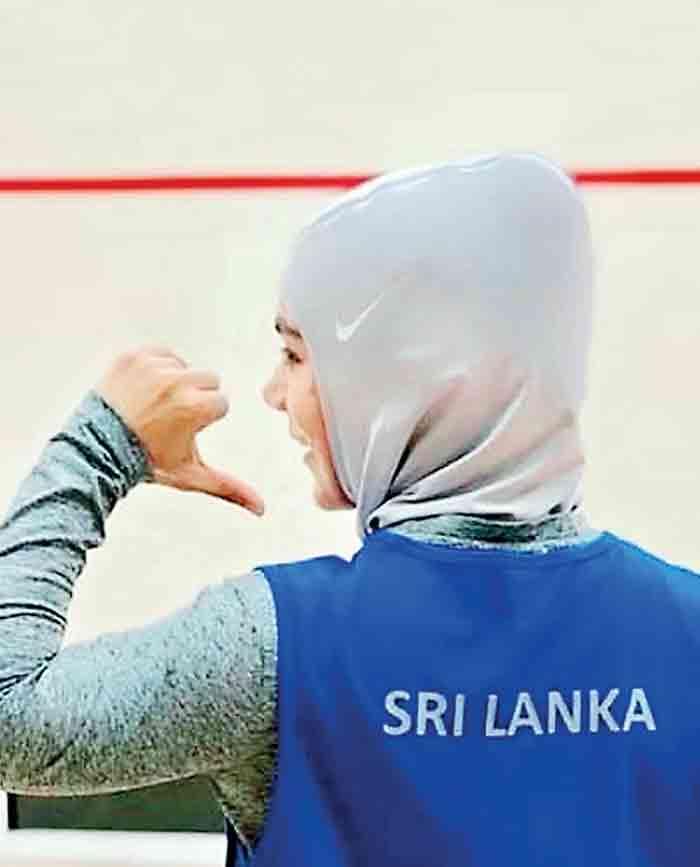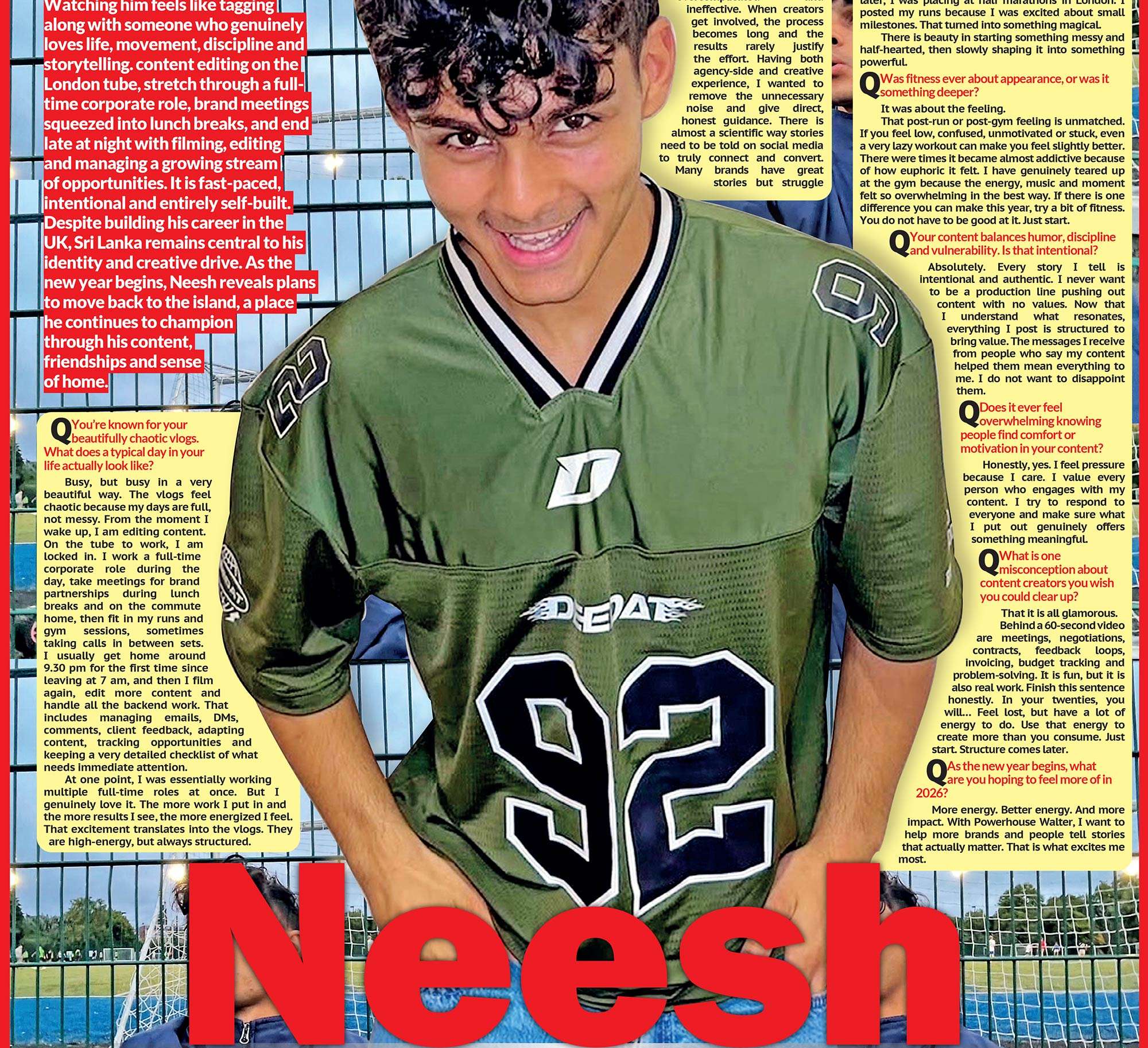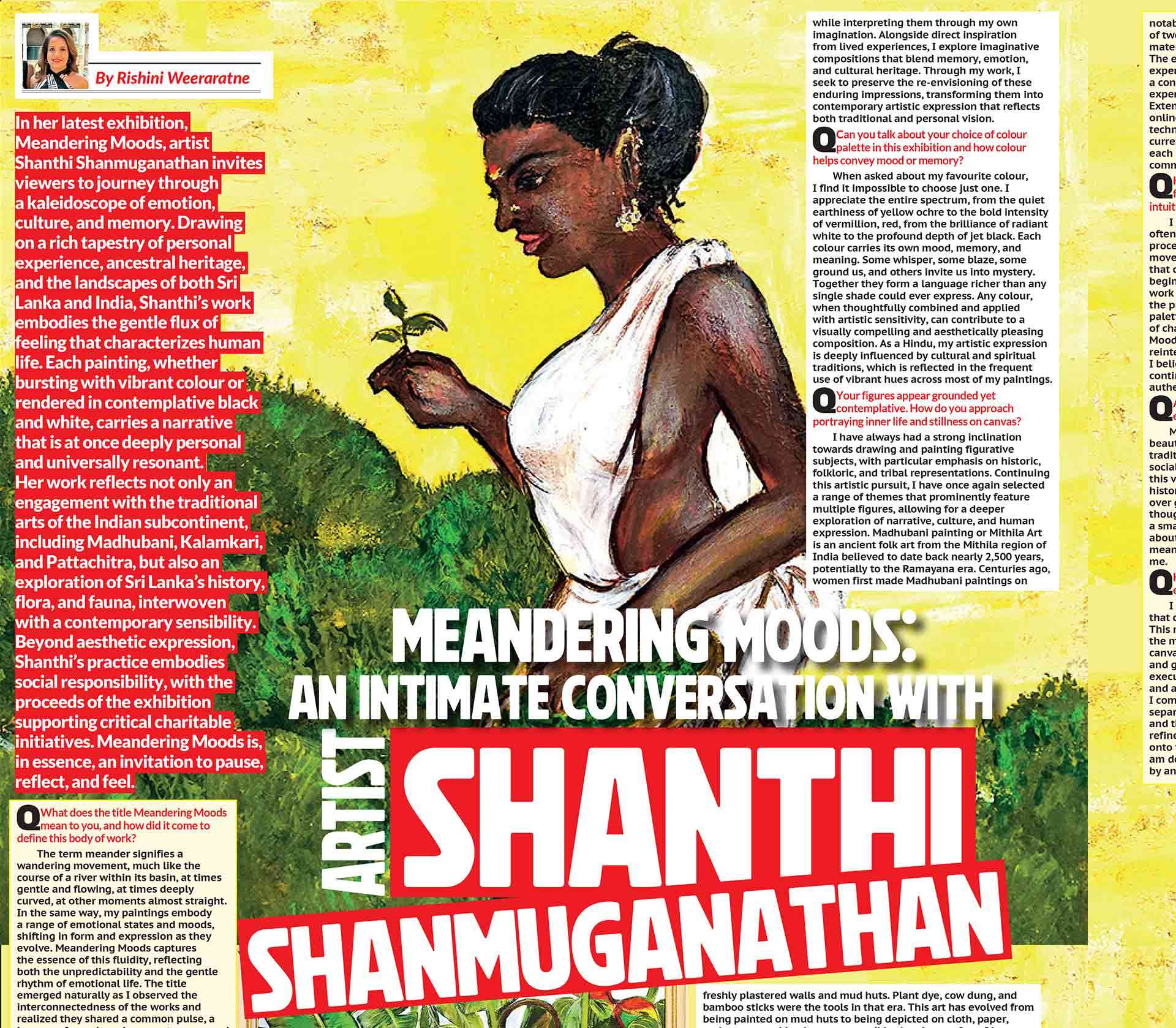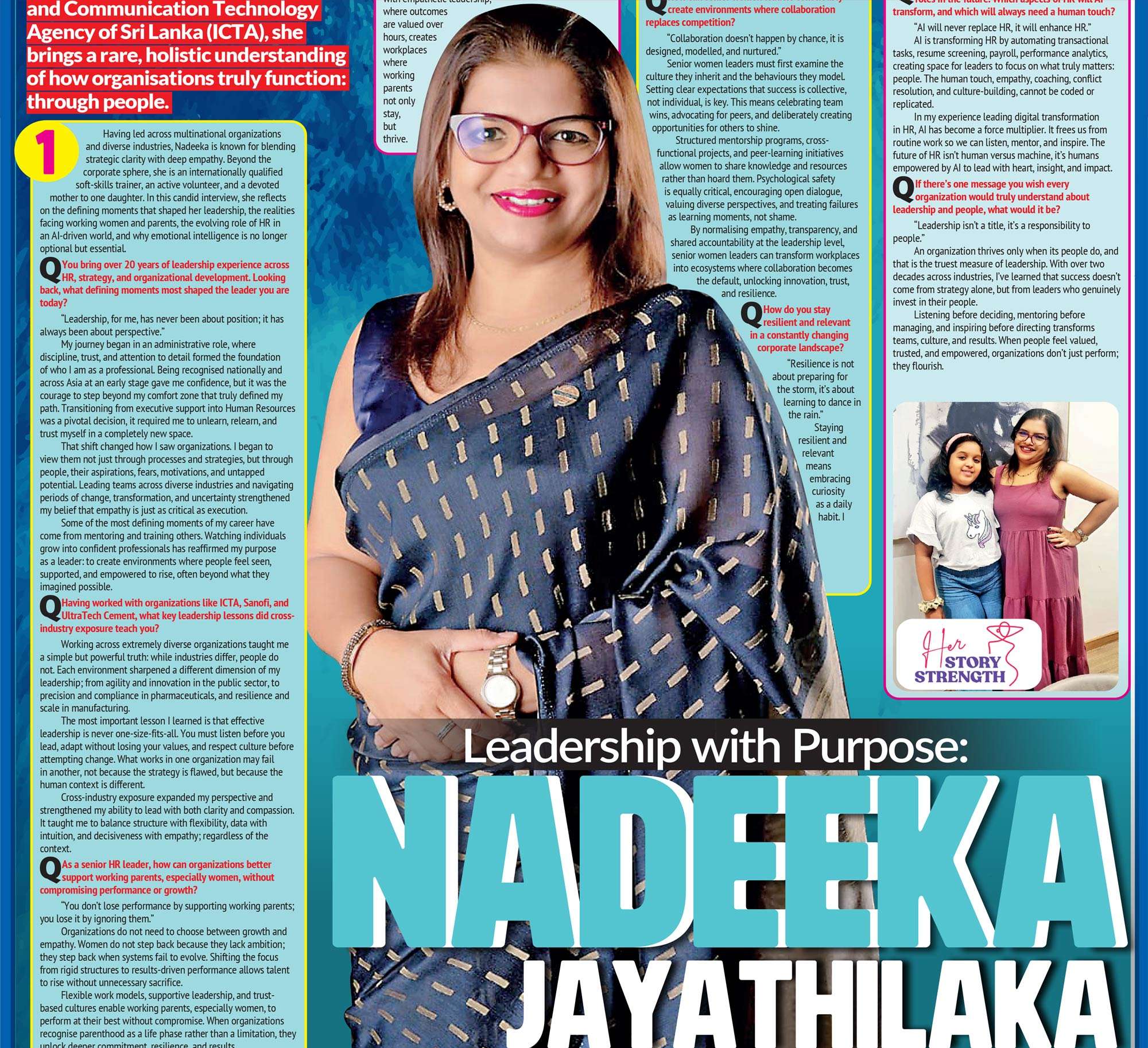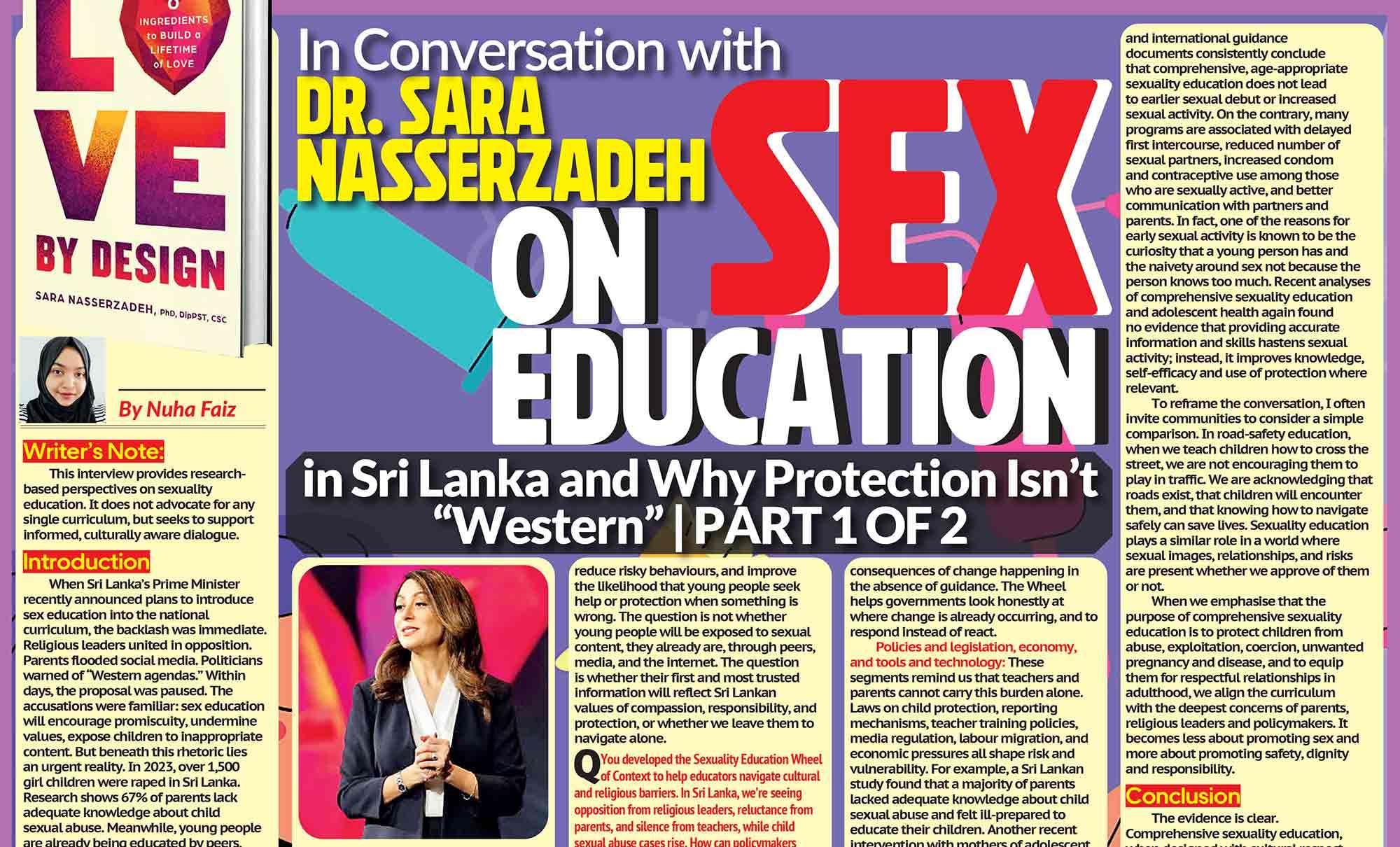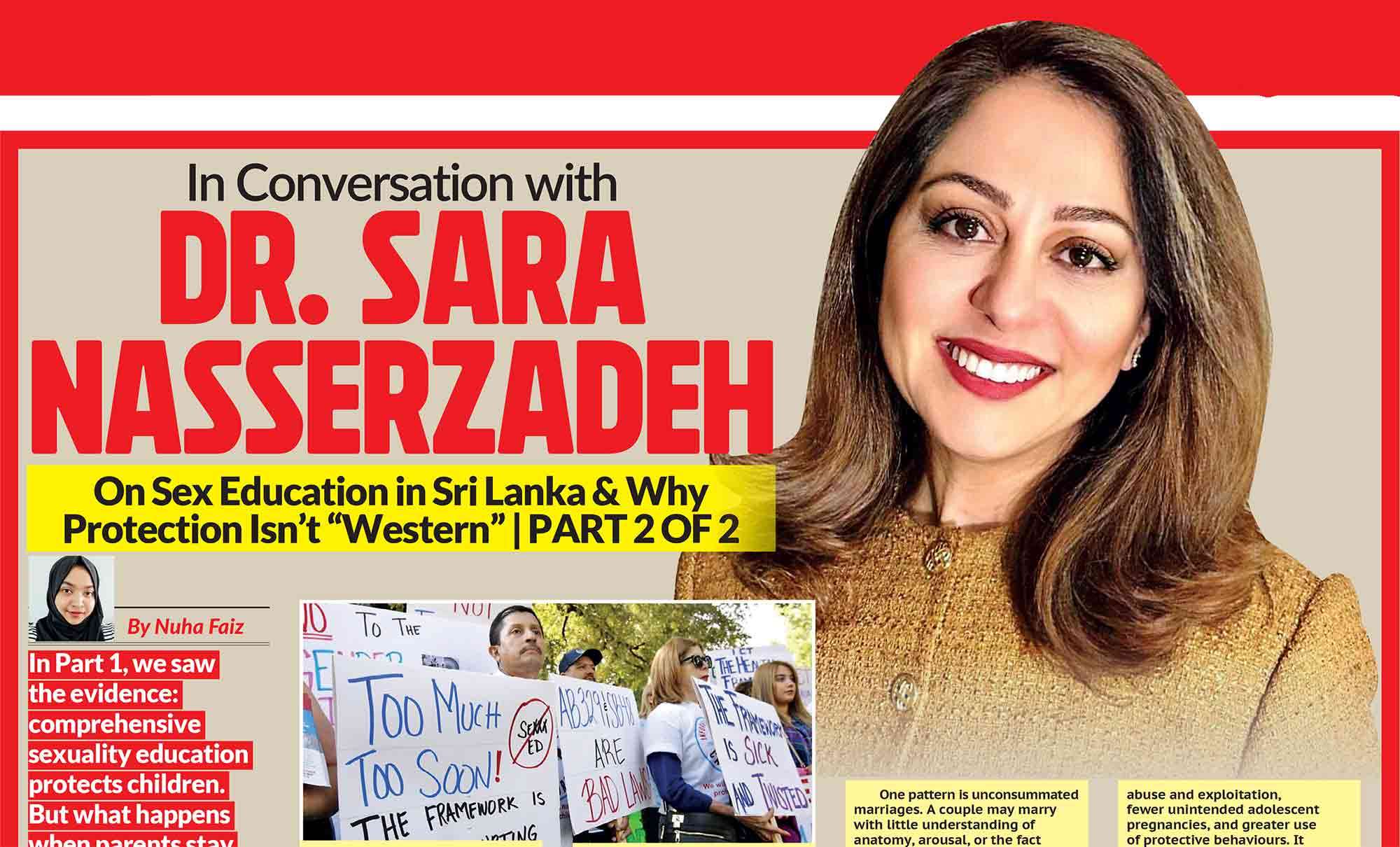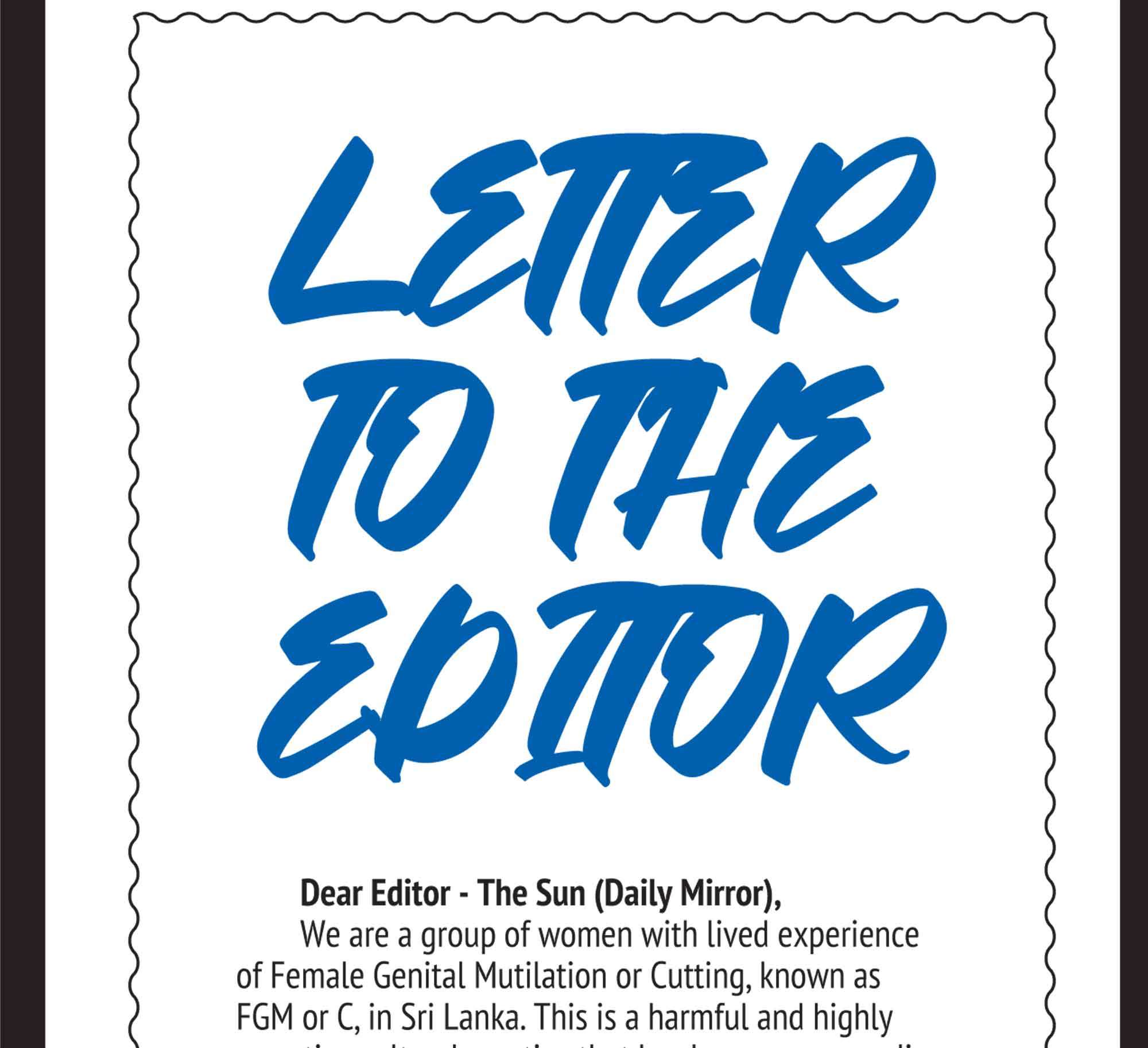
 We live in a world that loves turning women into talking points. Two mirrors held up: one showing a woman in a hijab, one without, as if a woman’s worth, her years of discipline and sacrifice, can be reduced to what she wears. And for Muslim female athletes in Sri Lanka, that scrutiny becomes harsher, louder, and often cruel. Their victories are dissected, their bodies policed, their faith debated by strangers online. The comment sections fill with accusations, moral judgments, and the kind of ugliness that hides behind anonymous profiles, asking whether they are “Muslim enough,” “modest enough,” or “obedient enough,” as if their dedication, their sweat, their discipline are irrelevant next to a piece of fabric. Instead of support, many face ridicule, condescension, and posts that attempt to shame them back into silence. When Shafiya Yamick won three golds for Sri Lanka, the celebration should have been simple. Instead, it became a battleground. The debates weren’t about her talent or her dedication, but her shorts. And in that noise, another name surfaced as comparison: Fathoum Issadeen.
We live in a world that loves turning women into talking points. Two mirrors held up: one showing a woman in a hijab, one without, as if a woman’s worth, her years of discipline and sacrifice, can be reduced to what she wears. And for Muslim female athletes in Sri Lanka, that scrutiny becomes harsher, louder, and often cruel. Their victories are dissected, their bodies policed, their faith debated by strangers online. The comment sections fill with accusations, moral judgments, and the kind of ugliness that hides behind anonymous profiles, asking whether they are “Muslim enough,” “modest enough,” or “obedient enough,” as if their dedication, their sweat, their discipline are irrelevant next to a piece of fabric. Instead of support, many face ridicule, condescension, and posts that attempt to shame them back into silence. When Shafiya Yamick won three golds for Sri Lanka, the celebration should have been simple. Instead, it became a battleground. The debates weren’t about her talent or her dedication, but her shorts. And in that noise, another name surfaced as comparison: Fathoum Issadeen.
Sri Lanka’s top-ranked squash player. A woman who has fought through injury, neglect, and the exhausting weight of being turned into a symbol. A woman overlooked for the 2022 Commonwealth Games despite being No. 1. A woman who wakes up each day and continues, not because the system supports her, but because something inside her refuses to break. This isn’t hijabs versus shorts. This is about two women who have given everything to their sport, only to have their existence politicized and pitted against each other by a society; and at times, their own community, that still cannot celebrate women unconditionally. I reached out to Fathoum because her story deserves to be told in her own words; unfiltered, unedited, human. This is her truth.
Q You’ve been Sri Lanka’s top-ranked squash player for years, yet you’re constantly labelled: “hijabi athlete,” “first Muslim woman.” If you told your story with no filters, what would you say first? And what have these labels cost you?
If I could tell my story in my own words, I'd start by saying that none of this came easy.
People see the trophies and the headlines, but they don’t see the mornings when my body ached so much I could barely stand, or the nights I trained until I couldn’t feel my legs. They don’t see the days I fought through pain, exhaustion, or fear, telling myself: just one more round, one more breath.
My journey has been discipline and heartbreak, building from nothing while carrying wounds that never fully healed. Every win cost something; a piece of my energy, a quiet tear, a moment of doubt. There were times I thought I’d lost it all, times my body gave up before I did, and somehow I found a way back.
That’s what strength has meant to me, not perfection, but the silent fight it takes to keep going when everything hurts.
For years, I’ve worn labels: hijabi athlete, representation, first Muslim woman. I’ve learned to carry them with pride because being a Muslim woman representing Sri Lanka means so much to me. But there’s a cost; expectations, scrutiny, constant judgment. People forget I’m still human, that I have a heart that dreams and chooses for itself.
Sometimes it felt like my life didn’t belong to me anymore, as if every decision had to pass through an image others created. And when I stepped outside that image, even slightly, it wasn’t met with understanding, but disappointment.
Faith, to me, isn’t perfection. It’s sincerity. And being a woman in sport isn’t about fulfilling expectations; it’s about standing firm in what’s true for you.
Yes, I’m proud to be a Muslim woman, proud of my hijab, proud to represent my country. But I’m more than those titles. I’ve walked through fire to stay true to myself. Even after everything, I still wake up with hope. I still dream, because I refused to let the pain write the ending.
Q 2022. You were No. 1. You weren’t selected for Commonwealth Games. When you heard Shafiya speak about being left out despite qualifying, did you see yourself in her story?
When I heard Shafiya’s story, I felt it deeply, not just as an athlete, but as a woman who has lived through that silence.
You give everything for years, and when the moment comes, the door closes quietly. They call it procedure, but we know what it feels like: being unseen, unheard, reduced to something other than our ability.
Watching what she went through reminded me how heavy it is to carry excellence and expectation together, to do everything right and still be questioned or excluded. And it is painful because when women like us achieve something, the focus shifts to how we looked, what we wore, or what we represent.
No athlete should ever have to choose between identity and opportunity. Sport should be about merit.
We train for that moment when our flag rises. To be denied that after years of sacrifice stays with you.
It shows our stories aren’t isolated. They’re part of a pattern where women’s achievements are acknowledged selectively. And that’s why it’s important we keep showing up and reminding the world we deserve our place, not for how we appear, but for what we’ve earned.
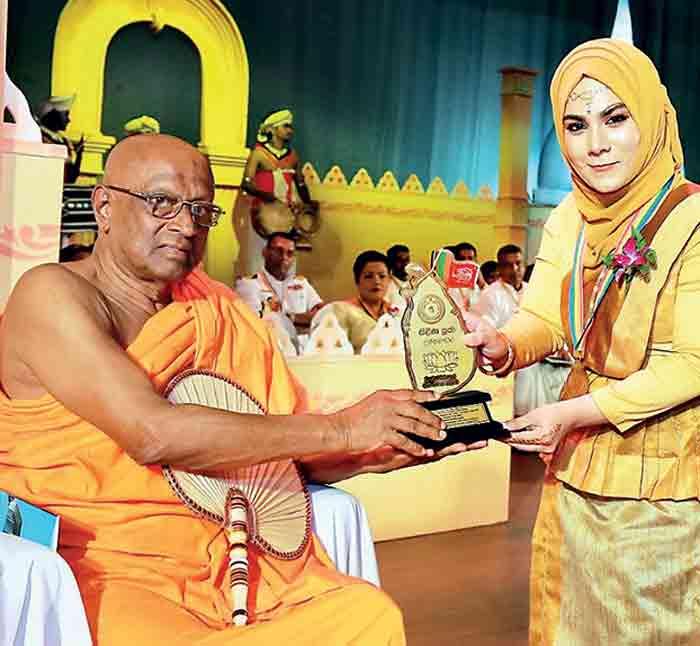
Q Your hijab. Her shorts. Same judgment. Why can’t women athletes just win?
Even when women win, we’re made to explain how, why, or whether we deserved to. Our victories are almost never taken at face value. There’s always commentary about our bodies, clothes, choices.
When I saw what happened to Shafiya, I recognized that silence, that feeling of giving everything and still being judged for something irrelevant. She deserved to be celebrated fully. Instead, her moment was shared with noise that had nothing to do with her performance.
athletes are constantly asked to fit impossible boxes: inspire, but not too loudly; be confident, but not intimidating; be visible, but only in ways that make others comfortable. It’s unfair.
My hijab is my choice rooted in faith. And she make her choices for her own reasons, I believe everyone must be respected. Clothing shouldn’t overshadow work. Sport should unite, not divide.
And even with all the judgment, we keep showing up, because every time a woman walks into an arena and gives her best, she expands what’s possible for every girl watching.
Q People call you a role model and a symbol. But did anyone ask if you wanted that? What does it feel like when criticism comes from your own community?
It’s humbling to be called a role model, but people forget that behind every symbol is a person who still feels, struggles, and hurts.
When the world focuses on the idea of me, they often forget the human being. I didn’t set out to be a symbol, I just wanted to do what I love, honor my faith, and make my country proud. But the expectations and judgments became heavy over time.
Often the harshest criticism isn’t from strangers, but from within your own circles. And that hurts, because you hope those closest to you would understand.
When you’re seen as either ‘too Muslim’ or ‘not Muslim enough,’ you find yourself endlessly justifying your identity. But I’ve learned to hold on to myself quietly, to stay grounded in my intentions. I don’t need everyone to understand me. I just need to move sincerely.
Strength isn’t the absence of struggle. And I hope one day we learn to celebrate one another without measuring who deserves it.
Q You wake up at dawn. You train when others sleep. Support is rare. Recognition is selective. What keeps you going?
I stopped waiting for perfect conditions long ago. If I had waited for systems to support me, I would’ve quit.
I keep going because what I want matters enough to fight for, even when it’s lonely. Sacrifice isn’t tragic to me anymore; it’s the price of purpose.
Support can be conditional. Recognition selective. But I’m driven by clarity, not noise. On the hardest days, I remind myself: I’m not asking for permission to be here. I’m earning my place. Resilience isn’t surviving systems. It’s outgrowing them.
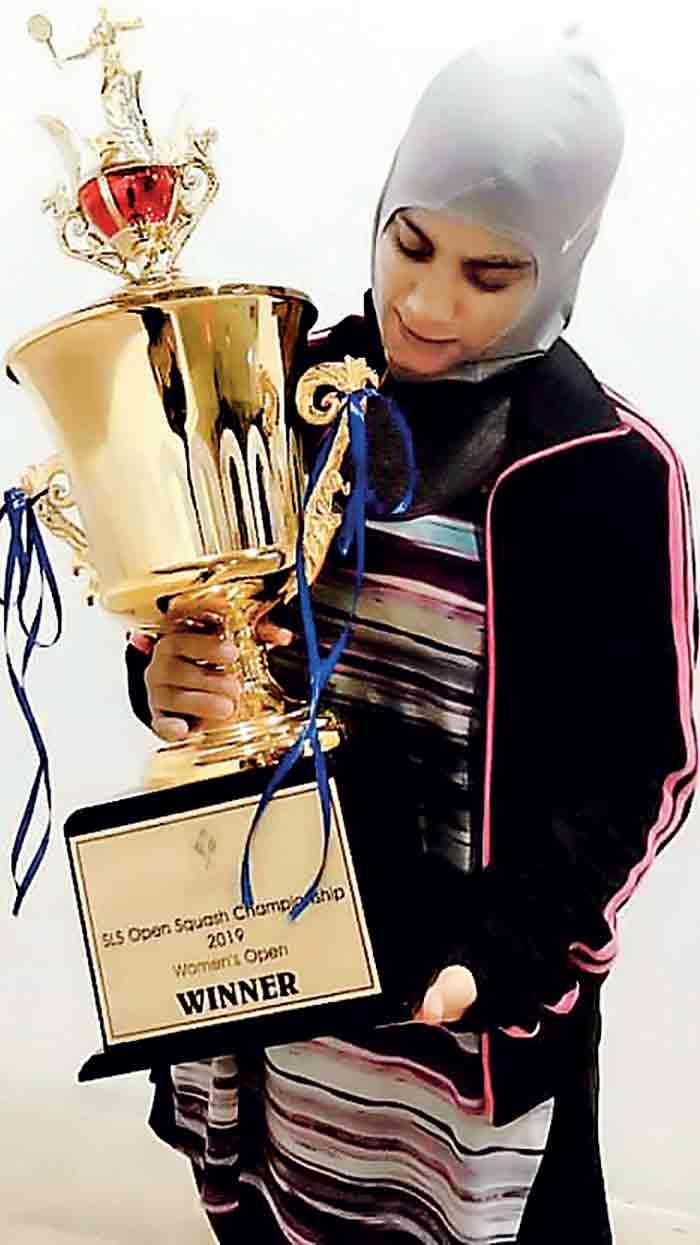
Q Every headline reduces you to fragments. What’s the part of your story that belongs only to you?
People see pieces; an achievement, a controversy, but rarely the spaces in between.
What’s mine is the quieter part: the girl who gets nervous before big moments, who prays for strength, who breaks down but still stands up again. The part that stays soft even when the world tests me.
My worth was never meant to depend on anyone’s approval, it was written by the Almighty.
What’s mine is the flame that refuses to die, even when everything tries to extinguish it.
Q If the world truly listened, what would you finally want to say?
Strength isn’t being unbreakable. It’s surviving what should have broken you. I’ve been silenced, misread, told who I should be. But I’m still here, fighting to exist as myself. Behind every composed woman are nights of shaking hands and whispered prayers. Earlier this year, I almost didn’t make it. I went through liver failure and came frighteningly close to losing my life.
Even now, not everyone celebrates that survival. Some days it feels like being alive is an inconvenience to those who want me to fit their script. Recovery was its own battle. But I learned I don’t owe perfection or permission. My life is mine, guided by the mercy of the Almighty. Strength is the quiet miracle of still being here. And I’m not done yet.
When I finished reading her words, I sat in silence.
This is what we do to women: turn them into symbols, arguments, reflections of our discomfort. Two athletes; one in hijab, one in shorts, each reduced, judged, scrutinized. Their victories overshadowed not by opponents, but by society.
Fathoum and Shafiya are not opposites. They are not a debate. They are two women who fought systems never built for them and survived.
If we cannot celebrate women without conditions, the failure is not theirs. It is ours.
Sport is meant to be about merit, discipline, courage. Women like Fathoum embody all three. She earned her place. She survived what should have ended her.
And her story is far from over.
This is not just her story; it is every woman’s story. May we finally learn to listen.
